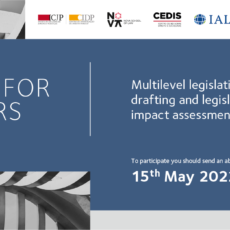
In the 1970s, John Schwarz and Earl Shaw introduced the famous “90 percent rule”: executives usually propose at least 90% of the bills and about the same percentage of those bills are adopted by parliaments.
One might wonder why the research on legislation has so seldomly asked how and by whom are the bills prepared, or, to quote another scholar: “the question is rarely asked about how legislation comes to be written”.
Today takes place a workshop in Prague that intends to stongly discuss this issue. The workshop will cover not only formal framework and processes within the executive that lead to the final texts of the bills (legislative drafting), but also how does the framework work in practice. Who influences the processes (civil servants or politicians?, relationships in coalition cabinets), what is the role of independent expert bodies?, how are external subjects and public involved?, how transparent is the process?, among other accurate questions.
Workshop programme
9 AM: Introductory panel
o Drafting and negotiating bills: Review of the research field and current problems (Helen Xanthaki, University College London, London)
o Outline and goals of the “Dark Corners of the Legislative Process” project (Robert Zbíral, Masaryk University, Brno)
o Discussion
– 10 AM: Drafting and negotiating bills: Situation and experience from Central Europe
o Slovakia (Milan Hodas, Comenius University, Bratislava)
o Germany (Ulrich Karpen, University of Hamburg)
o Poland (Jacek Sokolowski, Jagellonian University, Cracow)
o Austria (Eric Miklin, University of Salzburg)
o Czech Republic (Marian Kokeš, Palacky University, Olomouc)
o Hungary (Ivan Halasz, Czech Academy of Sciences, Prague)
– 12 AM: Discussion: Cross-fertilization of ideas for further research
This text was written and kindly granted to the IAL by Professor Robert Zbíral (Masaryk University, Brno).





